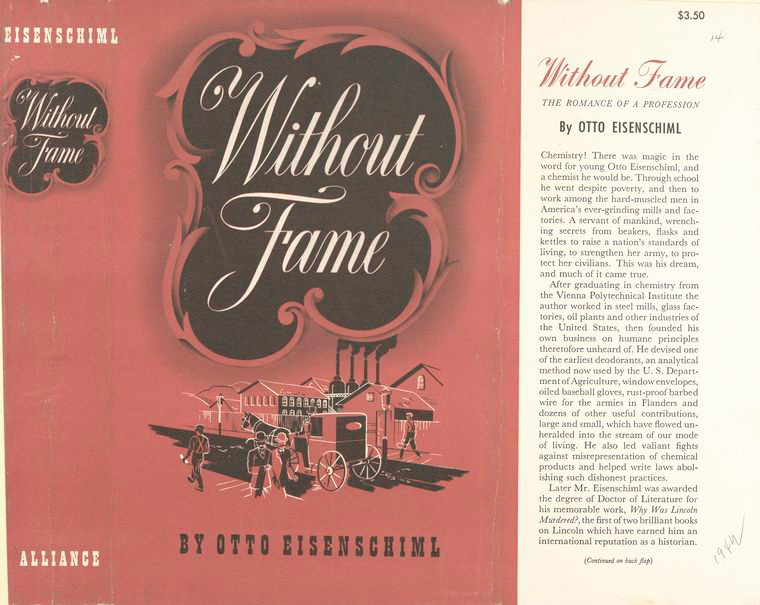Biblio File
Silence, Exile, Cunning: The Anonym as Celebrity: A Critical Bibliography
"What ails you, Polyphemos? Why do you cry so sore/in the starry night? You will not let us sleep./Sure no man's driving off your flock? No man/has tricked you, ruined you?/
Out of the cave/the mammoth Polyphemos roared in answer:/
'Nobody, Nobody's tricked me, Nobody's ruined me!'"
—The Odyssey, Book IX

The disavowal of civil liberties, the erosion of rights to privacy, and the bastardization of cultural subjectivity all in the name of "security", celebrity and spectacle have amassed a great many responses from myriad political viewpoints, although one symptom of the fallout remains somewhat without comment, conspicuous by its own absence: as Chris Marker cryptically poeticizes in his film, Sans Soleil, "Censorship is not the mutilation of the show, it is the show. The code is the message. It points to the absolute by hiding it. That's what religions have always done." So too then is the anonym the 21st century's obscure object of celebrity par excellence.
[Case in point: British graffiti artist Banksy's subversive, emphatically public, art.]:

What do we mean by anonym? Not simply the pen name or nom de guerre of a mere author or another (the widespread knowledge that Mark Twain was Samuel Clemens, Stephen King is Richard Bachman, Nora Roberts is J.D. Robb, etc.), no. Rebranding this is not.
Consider sci-fi author John Twelve Hawks: in sporadic, spare interviews, Twelve Hawks claims to live "off the grid". His Fourth Realm Trilogy pivots on the Orwellian supposition of surveillance logic's inevitable conquest of all human activity, and he has even published a short essay, titled "How We Live Now", that explains his concerns over technology and power.  In the nineties, public discourse ran rampant with wild claims about the "Information Superhighway" and the potential of the Internet to change the very fabric of social life.
In the nineties, public discourse ran rampant with wild claims about the "Information Superhighway" and the potential of the Internet to change the very fabric of social life.
While we may look back fondly on the naive rhetoric of that era, the early days of the Internet also brought one of its most secretive phenomena to bear: Luther Blissett. Famously, the "non-person" that was Luther Blissett committed seppuku December 31st, 1999, and in his stead Wu Ming was born. Wu Ming (in reality four Italian authors who refuse to be photographed, although their real names are known) means "anonymous" in Chinese. These collective personas are more than the sum of their parts: their resistance to invasive scrutiny in itself is part and parcel of their artistic content.
More complexly, one forebear of the anonym might be considered Portugese poet and modern mystic Fernando Pessoa's innovative category of the heteronym (a name for a fully-formed character). Conceptually crossed with notoriously reclusive literati such the late J.D. Salinger, the elusive B. Traven and the hermetic Thomas Pynchon, the anonym is a fiction created not to promote speculation, investigation and notoriety, but to curb it. Rather than "celebrity" - the gloss of nothingness indexed over a presumably emotionally aware human being ("Celebrities! They're Just Like Us!" and so on) - the anonym uses the invisible materials of nothingness to call everything else into ultimatum with it: Anonymity is not the mutilation of the show, it is the show.
Another contempory 'anonymous' author is Torsten Krol. Very little is known about this working writer, although there is some speculation he may be someone more famous using a pseudonym. His The Dolphin People is a dark family drama set in the jungle and features indigenous Amazonians and Nazi war criminals butting heads, while Callisto reads like a hilarious satire on paranoiac post-9/11 America.
Finally, I draw on Virginia Woolf for a closing thought. In "A Room of One's Own", Woolf argues that it was not until women's suffrage and emancipation that men began to pronounce an exaggerated manliness, their masculinity adopting ridiculously performative measures and dimensions to contrast with the modern roles of women.
So too then, in our contemporary constellations of commodification, political personality cults, dwindling attention spans, Hollywood gossip and quarterhours of fame, the figure of anonymity is not simply a negation of pop culture's hegemonic control, but a positive, pronounced, public admittance that the only remaining point of authenticity is obscurity itself.
I thank you.
Read E-Books with SimplyE
 With your library card, it's easier than ever to choose from more than 300,000 e-books on SimplyE, The New York Public Library's free e-reader app. Gain access to digital resources for all ages, including e-books, audiobooks, databases, and more.
With your library card, it's easier than ever to choose from more than 300,000 e-books on SimplyE, The New York Public Library's free e-reader app. Gain access to digital resources for all ages, including e-books, audiobooks, databases, and more.
If you don’t have an NYPL library card, New York State residents can apply for a digital card online or through SimplyE (available on the App Store or Google Play).
Need more help? Read our guide to using SimplyE.

Comments
Eye-opening stuff
Submitted by Brigid Cahalan on May 26, 2010 - 12:30pm